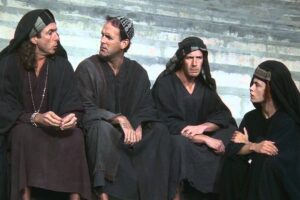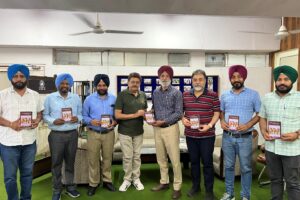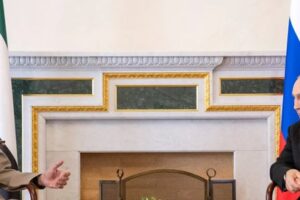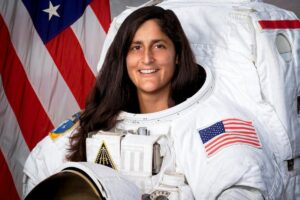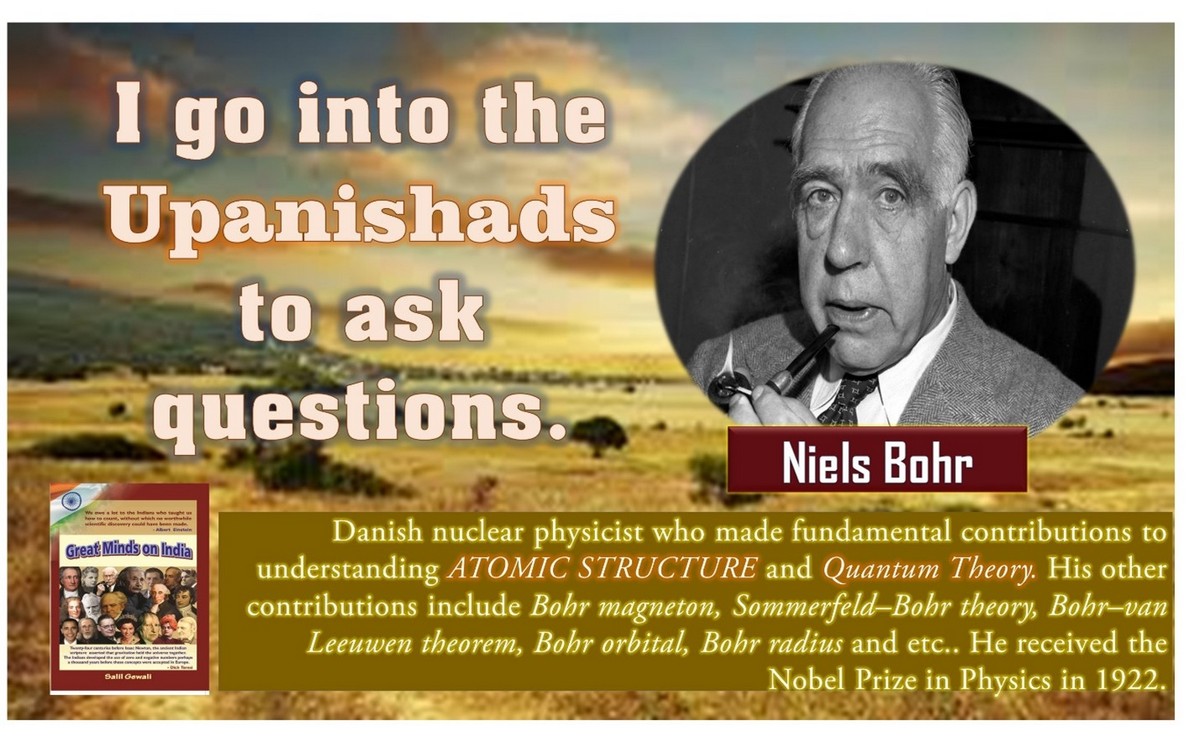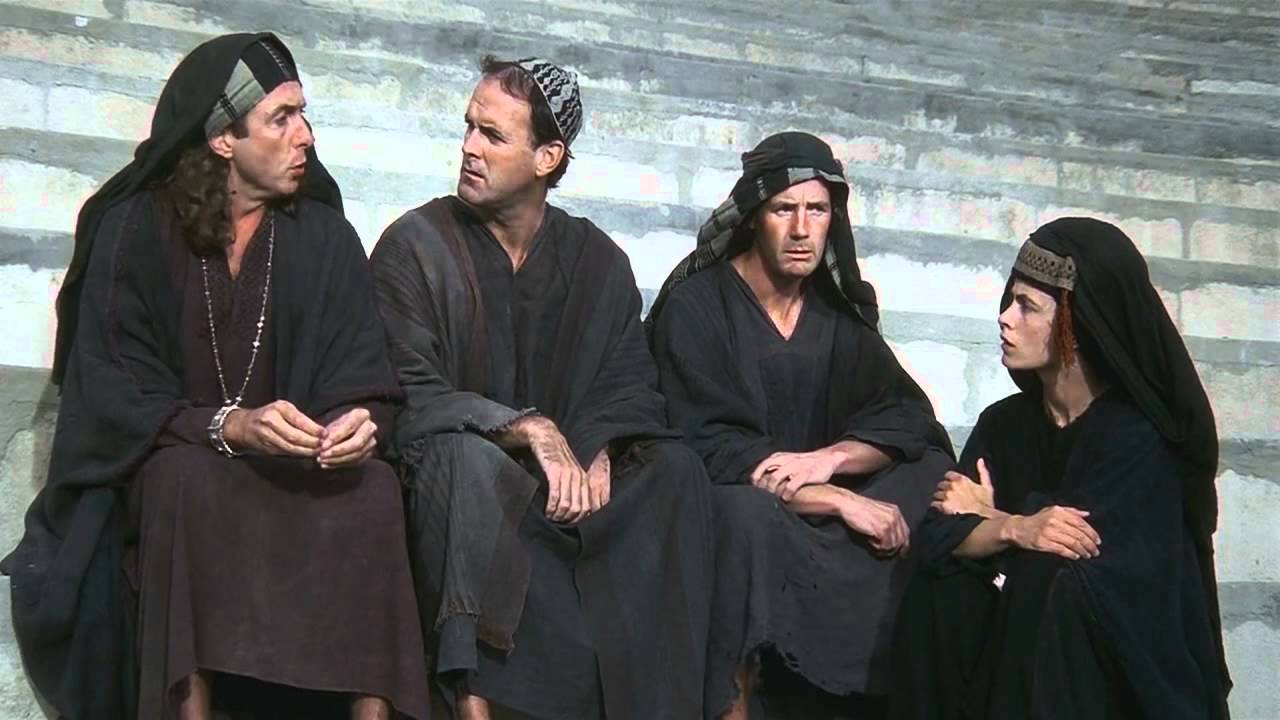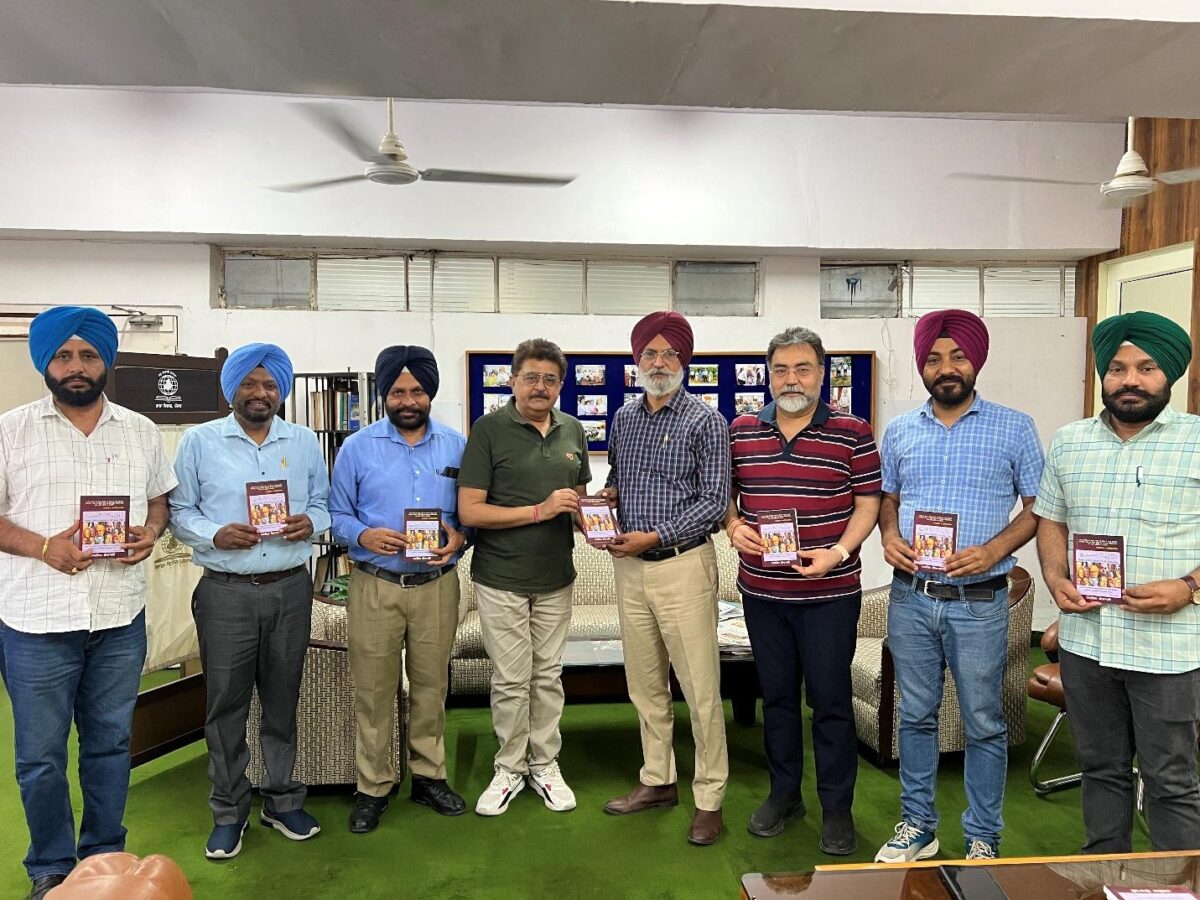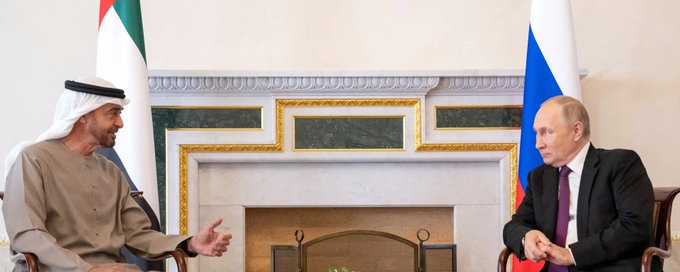Salil Gewali, Shillong
Firstly, it was my great love for the country. Secondly, I learned much about Indian wisdom when I was introduced to the works of Swami Vivekananda by my father at an early age. Frankly speaking, the works of Swami Vivekananda, Sri Aurobindo, Paramhansa Yogananda and Mahatma Gandhi were real eye-openers and my initial inspirations. Their works became deeply embedded in my heart and inspired me to read and explore more. I fondly treasure those boyhood days. I was not even 10 years old when I would read, whenever I had any free time, a small booklet titled – ‘Call to the Nation’ by Swamiji. It changed my whole perspective, the way to look at the country and even the life we live in this mundane world. The Bhagavad Gita and Upanishads were other books I read again and again and pondered on the higher meanings of life.
Let me narrate how the seed of inspiration was sown, germinated, took root and has grown into a tall-standing tree:
On a winter’s day in 1988, when I was traveling to Delhi, I picked up a book – ‘The Discovery of India’ by Pundit Jawaharlal Nehru – from a newsstand in Guwahati Railway station. I had heard a lot about the work of Pundit Nehru.
It contained a wealth of knowledge/information about the country and the significance of her ancient heritage. I read this book very attentively throughout my journey of over 56 hours. What amazed me most were a few quotes from the book by world-famous Western scholars and philosophers. Those few quotes deeply appreciated the ancient Indian wisdom, language, and culture. For many months, I felt extremely haunted by those words of the western luminaries.
Similarly, the second book that fascinated me was Autobiography of a Yogi by Paramhansa Yogananda. I even came across such profound opinions by great thinkers like Ralph Emerson and Arthur Schopenhauer. These quotes left deep impressions – both on my mind and on my heart. I began to realise India was far more than what we have known or had been made known to us.
But the real turning point came when I encountered another book titled ‘We are not the first’ by UFO scientist Tomas Andrew. I came upon incredible facts based on modern science. I saw clearly that many discoveries of modern times had already been mentioned in the ancient scriptures of India. Vivid references and precise theoretical illustrations of atomic structures and the time scales were inconceivable to the scientists of even the early 19th century. My science background helped me immensely to go deeper into the subject.
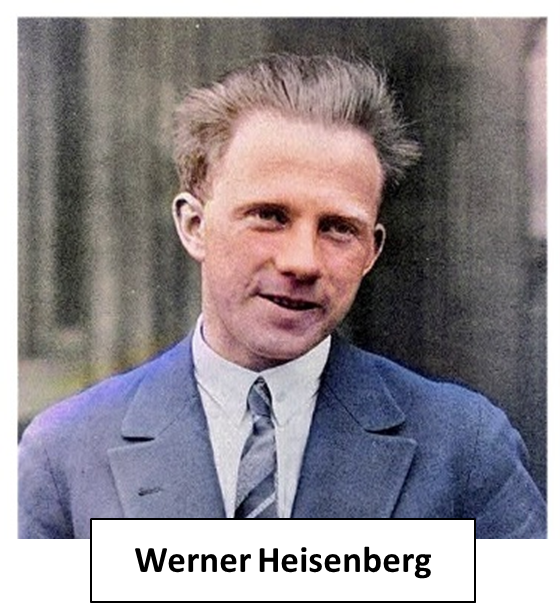
I strongly felt then that these Western scientists would not have applauded and approved of the ancient wisdom and knowledge had there not been any scientific validity and significance. I gradually learned that scientists like Schrödinger, Niels Bohr, Julius Oppenheimer, David Bohm, Heisenberg, David Josephson, et al had formed ideas relative to Quantum Physics from the Upanishads and Vedas. It dawned on me that the ancient treatises had greatly emboldened those scientists to plunge deeper into the atom, moreover, into the inner core of Quantum Mechanics. Overwhelmed, Werner Heisenberg remarks: “After the conversations about Indian philosophy, some of the ideas of Quantum Physics that had seemed so crazy, suddenly made much more sense.” These facts consequently strengthened my conviction about the infallibility of the ancient literary archives which had enthralled me from an early age.
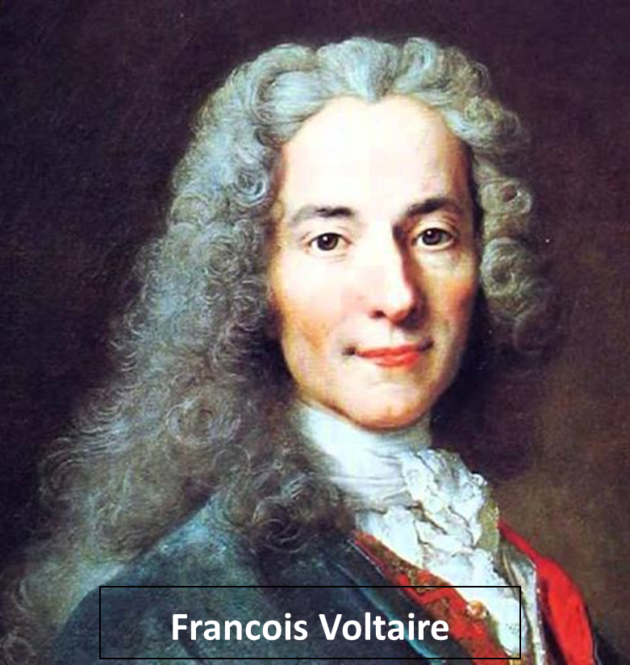
I kept reading, peering through the pages. I was constantly on the lookout for where I might stumble upon the great words of great minds. I rummaged through the pages of probably over a hundred more such books on ancient philosophy. Works written mainly by Western scholars on linguistics, astronomy, astrology, spiritualism and Ayurveda also captivated and intrigued me. Books like The Tao of Physics by famous American physicist Fritjof Capra, Indian and the World Civilization by DP Singhal, Hinduism Invades America by Wendell Thomas, Mathematics for Million by Thomas Hogben, The Great Secret by Maurice Maeterlinck and so forth, added to my determination to do something unprecedented and substantial for the country.
I clearly saw this great country being neglected, underestimated, and undervalued by her children. In time, I grew more inquisitive and felt I should know my Mother India before I developed a kinship with others’ mothers.
The thing that pricked at my conscience incessantly was this question: Why, in over sixteen years of my academic studies across several prestigious institutions, could I not find even sporadic references to these fantastic facts about India? Why have these proud truths about the ancient knowledge of the country never been taught to Indian students? Why are their minds stuffed with somewhat controversial information that only leaves negative impressions of the country and her ancient heritage? I was startled to discover that the Greek mathematician, Pythagoras, had travelled to India to learn Geometry and spiritualism! But I did not learn this from any of my textbooks, nor even from mathematics books published in my home country. Instead, I learned about Pythagoras and India from the work of one of the greatest thinkers of all time – Francois Voltaire.
Our people were kept in the dark in many ways for ages. Needless to say, the majority of our literate folks have heard about Ralph Emerson. But few know this world-acclaimed poet had written a solemn poem Brahma, and an essay Oversoul, inspired by our ancient wisdom. I sensed many things amiss in the country. Yes, we in India swell our chest to quote TS Eliot but hardly do we take our cue from his world-famous poem – The Waste Land – which ends with the Sanskrit words “Shanti, Shanti Shanti” and that finally speaks of cardinal truths as expounded in the Brihadaranyaka Upanishad. Does one wonder why Indians never get to learn such proudly impressive facts about the country and her rich literary heritage from the prescribed academic books? It’s bewildering that such stupendously lofty data is missing from the textbooks. So, it’s not strange at all that our children have grown to have less respect for our heritage and values.
Other factors that forced me to embark on this odiously fiddly research project are curiously paradoxical. Many literary books published in India, which deliberately undermined the ancient texts and denigrated cultural values were held in high esteem. Those authors were applauded, honoured, and awarded. In contrast, the ones who loved the country and wanted to uphold the traditional values and preserve the ancient wisdom were considered as the cohort lost in the wilderness of jingoism. All these freakish phenomena, which, I believe, never existed in any other country in the world, perturbed me literally.
Amid pessimism, however, I felt a surge of optimism pushing me forward. Some uncanny power was spurring me to assert that the country’s patriots were not oddballs and the treatises produced by the ancient sages were not fairytales/myths.
Yes, to me nothing would be more intriguing and encouraging than to know that Nobel laureate Erwin Schrödinger, the father of Quantum Mechanics David Josephson, father of Atomic Bomb Robert Julius Oppenheimer, Jack Sarfatti, all held Indian literature in the highest esteem and had also studied the Upanishads deeply. They had drawn many ideas about modern physics and other research works from the ancient scriptures.
Erwin Schrödinger had even used the phrases from the Upanishads to support his theory in his revolutionary work on Quantum Mechanics. He asserts with conviction: “The multiplicity is only apparent. This is the doctrine of the Upanishads. And not of the Upanishads only. The mystical experience of the union with God regularly leads to this view, unless strong prejudices stand in the West.”
This was thanks to the works of Rabindranath Tagore, whose Vedantic wisdom spellbound even Albert Einstein and Heisenberg, while Vivekananda’s speeches bewitched Nikola Tesla, Romain Rolland, Ella Wilcox, J. D. Salinger, and the like.
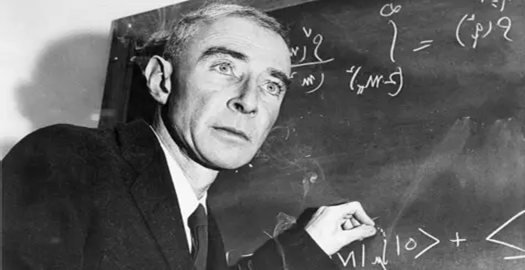
Of course, I started casually collecting such quotes about 22 years ago. But the idea of compiling a book only occurred to me while reading the world-famous treatise The Tao of Physics and Uncommon Wisdom by Fritjof Capra for the second time in 1995. Indeed, it put me in the most pensive mood. I was lost in the depths of thought for many years when I came upon Robert Julius Oppenheimer’s bombshell-like quote: “What we shall find in Modern Physics is an exemplification, an encouragement, and a refinement of old Hindu wisdom”. This statement touched me profoundly, wherein I clearly saw a great message by the ‘Father of the Atomic Bomb’ as enlightenment not only for modern scientists but for mankind. I felt deeply this must be spread among every citizen of India who is less aware of the higher truths about the ancient literary treasure troves. At the least, to make citizens aware that the ancient scriptures were science-based, universal and secular to the core. Paul Deussen has rightly eulogised: “Whatever may be the discoveries of the scientific mind, none can dispute the eternal truths propounded by the Upanishads.”
The years 1996-98 saw me frantically preoccupied. I worked exhaustively on this compilation. Of course, for the paucity of resources, it was a big challenge for me to come across such quotes in those days, but I did not hold back. I would regularly visit the libraries of Shillong, like State Central Library, RK Mission Library, St. Anthony Library, NEHRU Library and the like because I did not have enough money to buy books!
I cannot neglect to mention here, that apart from our bookstall, where I read many kinds of books, how I would frequent the junkyard, a popular second-hand market just near our shop in Shillong.
This was my preferred rendezvous. I had come across a rare collection of books there. I had chanced upon the opportunity to read priceless books of great intellectuals, like the translated works of Voltaire, Gottfried Herder, Sir William Jones, Friedrich Hegel, Max Muller and Henry David Thoreau from those few shops in this shabby market at Bara Bazar, Shillong.
Life is not always a bed of roses. The dreams one cherishes often meet stumbling blocks of adversity. No matter how much I tried, I could not save enough money to publish the book for many years, although the compilation was ready in 1998! Family responsibilities had begun to weigh heavily on me. However, I never lost my heart and I never pulled back. I photocopied many of those compiled quotes and share them with anyone who I believed would appreciate them. Some would be awestruck and even shed tears, some would remain indifferent, while others would just become critical. There were times when I would feel something was wrong. I wondered why do they feel uncomfortable when their heritage, their great Motherland, was being appreciated by none other than the very Western intellectuals whom they all held in the highest esteem as the men who brought significant changes to the world?
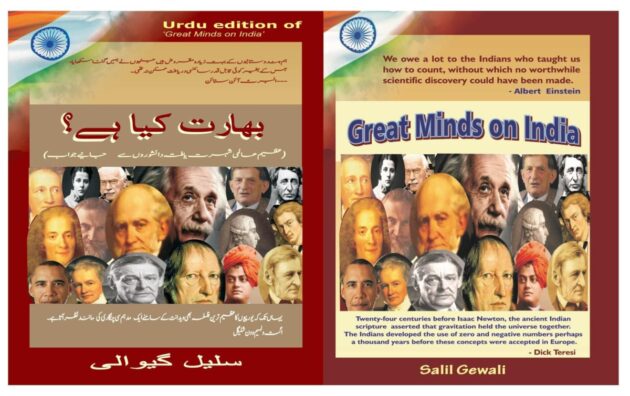
At last, my weary and dreary wait of over 11 years brought a sunny ray of hope. Yes, with a little improvement in my circumstances, I could see my treasured dream fulfilled. Finally, in 2009, I published the book titled ‘Great Minds on INDIA’ in a glossy format. I was delighted that the book was instantly glorified as the Governor of Meghalaya when he heartily consented to release it in the most fitting manner.
I have reasons to feel blessed. The work immediately caught the attention of scholars from across the world which I had hardly expected. A shower of compliments began to pour in. To my immense delight, I received phone calls even from many eminent scholars and writers throughout the world. I was immensely thrilled when Prof. A. V. Murali, a noted NASA scientist, called me up to express his gratitude for the work. He remarked: “This research-based book is simply outstanding! I never knew that such a compilation existed and we all should be thankful to the researcher! These great quotes should be embossed on plaques and displayed on the walls of our Parliament, State Assembly Halls, and all our educational institutions. Most importantly, the material should be made compulsory reading for all the school students (elaborating more on who is who and the monumental contributions of these intellectual giants).” It is indeed a matter of great happiness and honour that the title has so far been translated into fourteen languages and prefaced by a NASA Chief scientist – Dr Kamlesh Lulla of Houston, USA.
Lastly, my sincere prayer: May this ancient wisdom of the country evoke awe and reverence among the intellectuals. Let no children of the country speak ill of the mother whose womb gave birth to those mystic rishis whose works mesmerized even the great minds like Voltaire, Hegel, Goethe, Einstein..








